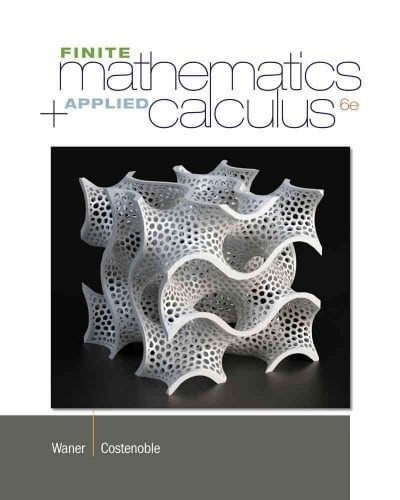Question
Randomization Test using R The conduct of a randomization or permutation test for the equality of two population means is as follows. Under the null
Randomization Test using R The conduct of a randomization or permutation test for the equality of two population means is as follows. Under the null hypothesis, there is no difference in the populations. Thus, the assignment of values to one population or the other is regarded as one arbitrary permutation. The question is how unusual is the test statistic under this permutation in relation to other permutations. For problem 9.2.20, consider the fixed and ARM rates. As the data appear, compute the difference in mean rates between them. Then combined the values from ARM and fixed into one vector. Sample without replacement from that vector a set of 10 rates. The "sample" function will help. The rates chosen represent one rate plan; the rates not chosen represent the other. For each of these permutations, take the difference of means between the rates chosen and the rates not chosen. Keep track for 1000 permutations of the test statistic. Use R to determine how many of the test statistics resulting from permuted rates are more unusual than the initial difference between rates from the way the data are given in the problem. The proportion of the mean difference in rates more unusual (extreme) than the initial difference is interpretable as a p-value. Report your p-value from the randomization test.
Step by Step Solution
There are 3 Steps involved in it
Step: 1

Get Instant Access to Expert-Tailored Solutions
See step-by-step solutions with expert insights and AI powered tools for academic success
Step: 2

Step: 3

Ace Your Homework with AI
Get the answers you need in no time with our AI-driven, step-by-step assistance
Get Started


